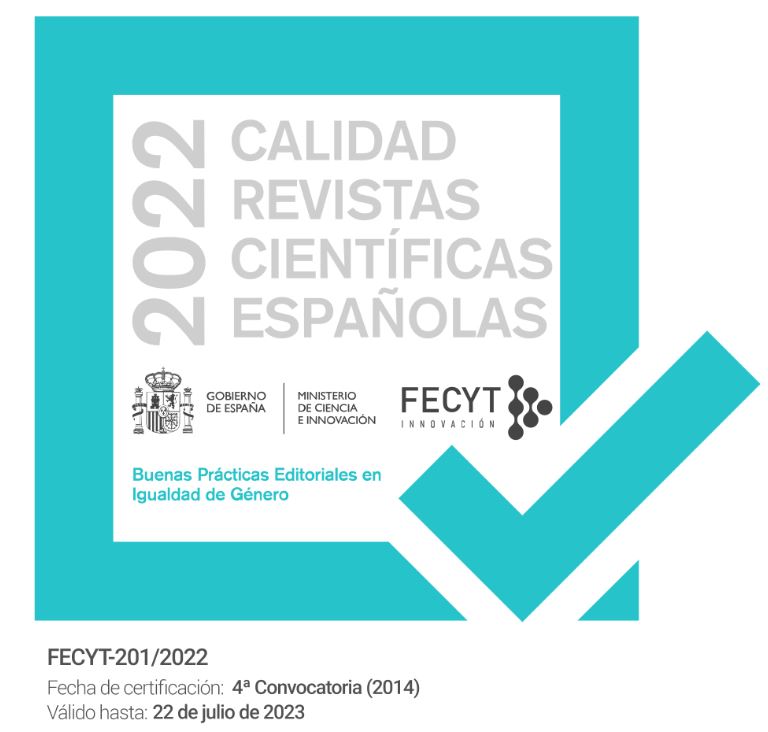Her IMPROVE TEACHERS' INNOVATIVE DIGITAL SKILLS ACROSS EUROPE
DOI:
https://doi.org/10.30827/eticanet.v25i1.31247Keywords:
Digital pedagogy, Digital competencies, Online teacher trainingAbstract
The Innovative Digital Education and Skills (IDEAS) ERASMUS+ project aimed to improve teachers' digital skills and competencies by directly responding to the EU's Digital Education Action-Plan (2021-27) Strategic-Priority 1. It involved the design of a 30-hour micro-credentialed teacher training course consisting of a digital toolkit with 14 bite-sized modules using adaptive learning models with the support of the IDEAS Mentors and implementing a pilot programme that was tested and evaluated. To carry out the course's instructional design, a needs analysis was conducted based on a literature review and a baseline survey to assess teachers' strengths, weaknesses, and needs in implementing digital pedagogy. After identifying teachers' needs, specific content was conceived, designed, and made available on a platform that allows access to the knowledge society. The study showed four areas of digital competencies needing training, and a learner persona was profiled following a gap analysis of the 99 responses. This data informed a pilot program with 80 Vocational Education and Training and Higher Education teachers to test the functionality of the digital Toolkit, the e-learning platform, design, quality, and impact of the content. Data analysis indicates that participating teachers improved their digital competencies and facilitated innovative learning experiences in their practices.
Downloads
References
Alqurashi, E. (2017). Micro-learning: A pedagogical approach for technology integration. The Turkish Online Journal of Educational Technology, 942–927.
Basilotta-Gómez-Pablos, V., Matarranz, M., Casado-Aranda, L., & Otto, A. (2022). Teachers' digital competencies in higher education: a systematic literature review. International Journal of Educational Technology in Higher Education, 19, 1-16. https://doi.org/10.1186/s41239 021 00312 8 DOI: https://doi.org/10.1186/s41239-021-00312-8
Bećirović, S. (2023). What Is Digital Pedagogy? In: Digital Pedagogy. Springer. Briefs in Education (). Springer, Singapore. https://doi.org/10.1007/978-981-99-0444-0_1 DOI: https://doi.org/10.1007/978-981-99-0444-0_1
Brande, L., Carretero, S., Vuorikari, R. (2017). DigComp 2.0: the digital competence framework for citizens. European Commission Publications Office. http://dx.doi.org/10.2791/11517
Coutinho, C. P. (2011). TPACK: em busca de um referencial teórico para a formação de professores em tecnologia educativa. PAIDE@ Revista Científica de Educação a Distância, 2 (4), 1-18. Retrieved from: https://hdl.handle.net/1822/13670
De Souza Araújo Cassundé, F. R., De Mendonça, J. R. C., & Barbosa, M. a. C. (2017). A influência das condições institucionais no desenvolvimento de competências eletrônicas dos professores para o ensino na EAD: proposição de um modelo analítico. Avaliação, 22(2), 469–493. https://doi.org/10.1590/s1414-40772017000200012 DOI: https://doi.org/10.1590/s1414-40772017000200012
European Commission, Joint Research Centre, Kampylis, P., Bacigalupo, M., Punie, Y. (2018). Digital education policies in Europe and beyond : key design principles for more effective policies. (P.Kampylis, M.Bacigalupo, Y.Punie, C.Redecker, eds.) Publications Office. Retrieved from: https://data.europa.eu/doi/10.2760/462941
Ferrari, A. (2013). DIGCOMP: A Framework for Developing and Understanding Digital Competence in Europe. eLearning Papers, (38), 1. https://doi.org/10.2788/52966
Hoadley, C. & Campos, F. (2022). Design-based research: What it is and why it matters to studying online learning. Educational Psychologist. 57:3, 207-220. DOI: 10.1080/00461520.2022.2079128 DOI: https://doi.org/10.1080/00461520.2022.2079128
Laurillard, D. (2013). Teaching as a Design Science: Building Pedagogical Patterns for Learning and Technology. Routledge.
Lilley, M., Pyper, A., & Attwood, S. (2012). Understanding the Student Experience through the Use of Personas. Innovation in Teaching and Learning in Information and Computer Sciences. 11(1), 4–13. https://doi.org/10.11120/ital.2012.11010004 DOI: https://doi.org/10.11120/ital.2012.11010004
Mezirow, J., & Associates, J. M. A. (2000). Learning as Transformation: Critical Perspectives on a Theory in Progress. Jossey-Bass.
Parker, J. (2011). A design-based research approach for creating effective online higher education courses. In 26th Annual Research Forum: Educational Possibilities (Western Australian Institute for Educational Research Inc), 13 August 2011, University of Notre Dame, Fremantle.
Padwad, A. & Dixit, K. (2011). Continuing Professional Development an Annotated Bibliography. British Council. Retrieved https://www.britishcouncil.in/sites/default/files/cpdbiblio.pdf
Redecker, C.(2017). European Framework for the Digital Competence of Educators: DigCompEdu. Punie, Y. (Ed.). Publications Office of the European Union. https://doi.org/10.2760/159770
Reinitz, B. (2020, June 1). Consider the Three Ds When Talking about Digital Transformation. Retrieved at https://er.educause.edu/blogs/2020/6/consider-the-three-ds-when-talking-about-digital-transformation
Scherer, R., Siddiq, F., & Tondeur, J. (2019). The technology acceptance model (TAM): A meta-analytic structural equation modeling approach to explaining teachers' adoption of digital technology in education. Computers & Education, 128, 13–35. https://doi.org/10.1016/j.compedu.2018.09.009 DOI: https://doi.org/10.1016/j.compedu.2018.09.009
Schleicher, A. (2020). The impact of covid-19 on education insights from education at a glance. OECD Publishing. Retrieved from: https://www.oecd.org/education/the-impact-of-covid-19-on-education-insights-education-at-a-glance-2020.pdf
Siemens, G. (2005). Connectivism: A learning theory for the digital age. International Journal of Instructional Technology and Distance Learning, 2(1), 3-10. Retrieved http://www.itdl.org/Journal/Jan_05/article01.htm
Stommel, J., & Morris, S. M. (2018). An Urgency of Teachers: The Work of Critical Digital Pedagogy. Pressbooks. Retrieved from https://pressbooks.pub/criticaldigitalpedagogy/
Uerz, D., Volman, M., & Kral, M. (2018). Teacher educators' competences in fostering student teachers' proficiency in teaching and learning with technology: An overview of relevant research literature. Teaching and Teacher Education, 70, 12–23. https://doi.org/10.1016/j.tate.2017.11.005 DOI: https://doi.org/10.1016/j.tate.2017.11.005
Vuorikari, R., Punie, Y, Carretero, S. & Van den Brande, L. (2016). DigComp 2.0: The Digital Competence Framework for Citizens. JRC Science for Policy Report. European Commission.
Wenger, E., Trayner, B. & de Laat, M. (2011). Promoting and assessing value creation in communities and networks: a conceptual framework. Ruud de Moor Centrum, Open University of the Netherlands.
Wenger, E. (1998). Communities of practice: learning, meaning, and identity. Cambridge University Press. https://doi.org/10.1017/CBO9780511803932 DOI: https://doi.org/10.1017/CBO9780511803932
Downloads
Published
Issue
Section
License
The authors who publish in this journal agree to the following terms: The authors retain the copyright and grant the journal the right to be the first publication of the work as well as licensed under a Creative Commons Attribution License that allows others to share the work with an acknowledgment of the authorship of the work and the initial publication in this magazine. Authors are allowed and encouraged to disseminate their work electronically (for example, in institutional repositories or on their own website) before and during the submission process, as it may lead to productive exchanges as well as further citation. Earliest and greatest of published works (See The Effect of Open Access).













